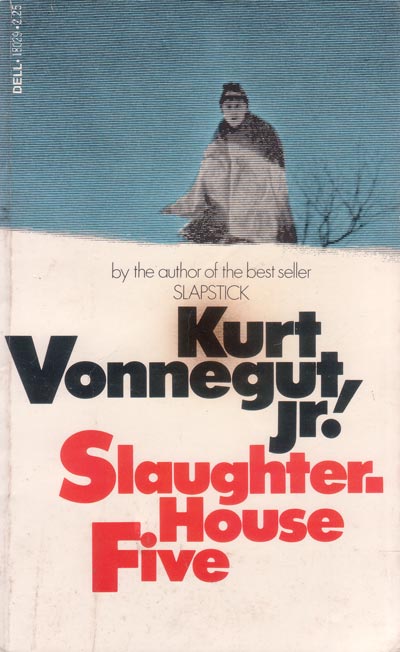
So, I got into a rather protracted debate over the James Frey issue last night over dinner. And, while the whole thing continues to develop, I'm just going to chuck in my two cents here, and cite some people who are smarter than I am and who have been in the business of media and publishing longer than I have. It'll only keep preoccupying me otherwise.
First of all, I have not read A Million Little Pieces. Memoirs, by and large, are not all that compelling to me. I could not get through the first 50 pages of A Heartbreaking Work of Staggering Genius (*gag*), though I valiantly tried. So, my knowledge on the book is based around excerpts and reviews.
It is likely symptomatic of what I do for a living that I find this whole matter completely abhorrent. Ya can't. Just. Make. Shit. Up. And then tell people it's true. You can't. Then, when you do, you really should not form your whole story of the redemptive power of overcoming addiction around a pillar of "the only thing that matters is the truth."
Seth Mnookin's (who is in a unique position to write on Frey, as he was also a drug addict born and raised in white Suburbia) recent piece in Slate is an excellent take on Frey's whole-cloth elements in Pieces as a troubled man's groping for street cred. Frey postures himself as a certain Hollywood-style bad boy in order to deliver some of the central truths of addiction: feeling the degenerate, feeling angry and disgusted with oneself. That this same anger help you reexamine your life and pull you out of the mire.
Ok. I buy that. I think a lot of people have found health and solace and a new life in rehab, but ok. Sure. Very Marlboro man. Could make for a compelling story. Which is what we understand Frey to have written. A fictional story, based on his experiences (indeed it was the BALCO Labs version of his experiences). No one wanted it. Why, if those central truths were honestly told? Because the writing, as I have come to understand it, did not hold up. The characters are generic. Cops. Rock Star. Man. All capitalized (very Teutonic of you, Jimbo), all drawn according to how they'd be cast for a TV movie. So, in the end, not a good pitch, the fictional version of Frey's experience.
But they (or, Nan Talese) wanted to recast it as a memoir and publish it. So he did, saying it was the basic truth of his life. The style with the capitalizing, with the generic characters, with the posturing, remains the same. And he writes in the book that the truth is the only thing that matters. Hold on. Fuck the Bullshit It's Time To Throw Down. All those catch phrases.
Then he made a metric shit-ton of money. And people were inspired by him. And it turned out that the central thing, the only thing that matters on your road to recovery, the truth, was not actually what the book is. It turns out that he was rather caught up in being thought a badass, and less caught up in showing his readers about what he learned in his experience of getting over drugs.
 We had an interesting comparison last night between the self conscious memoirist set like Frey and Eggers and Kurt Vonnegut, specifically Slaughterhouse-Five. My dining companion finds Vonnegut's writing to be self-couscious in the same manner as Frey and Eggers (though I strongly disagree. Not an article is out of place in Vonnegut's prose, so I don't think he relies on the same cuteness that Eggers or perhaps Frey uses to mask his insecurities).
We had an interesting comparison last night between the self conscious memoirist set like Frey and Eggers and Kurt Vonnegut, specifically Slaughterhouse-Five. My dining companion finds Vonnegut's writing to be self-couscious in the same manner as Frey and Eggers (though I strongly disagree. Not an article is out of place in Vonnegut's prose, so I don't think he relies on the same cuteness that Eggers or perhaps Frey uses to mask his insecurities).Vonnegut lived through some incredible horror in the firebombing of Dresden. This informs much of his work, especially Slaughterhouse. But rather than tell us how horrific it was to be a prisoner of war or to be trapped in a burning city and how the whole thing has informed how he deals with life, he actually showed us in a truly brilliant novel.
My over-arching point here is that the main difference is good writing. As *glassShallot points out, "If Frey lived 50 years ago, he would have just written his book with different cultural references, called it a novel, and been a pop author with hardly decent sales. As he should be" (he also links to a great piece in the NY Sun... go check it out). Yes. That's it. But in the mad rush to be the next reality-tv-style memoirist, a million little pop-lit onanists are getting published, making money, and getting lauded by the reading public. And that's sad. Because the Kurt Vonneguts of the world do it much, much better. It's just too bad that the Nan Taleses of the world are out trying to find the new Eggerses rather than the new Vonneguts.
All that said, I am aware that I am extremely difficult to please in the book department. Too many adverbs and you lose me. Use the word "utilize" and you're dead to me. But not everyone is as neurotic as I am. Which is fine. And liking Frey's book isn't wrong (I like Outlander... and she uses the word "tartly" like every paragraph... there is sometimes no accounting for taste). But damned if it isn't wrong that he got as far as he did on it, claiming such a staunch respect for the truth.
Frey image from randomhouse.com
Slaughterhouse image from laputan.org

6 comments:
As you know, I really enoyed "heart breaking work" and that I'm of the opinion you either love or hate that book. But in Eggers's defense, he does say he fictionalized much of the story, changed names, switched people around, etc. So it's a different style of work than Frey's false memoir.
I'm not putting Eggers in the falsifying category, so much as the "self-conscious style" category. Eggers is more upfront about alterations to the story, I agree. But, as I understand the case to be with Frey, Eggers is very much "look, I'm writing this, and you're reading it" rather than "I'm getting out of the way and showing you what this experience can do to a person."
It may be a stylistic choice, and it may be one that some people enjoy (which is fine... everyone is entitled to their own tastes), but I think that kind of writing style is cheap. You don't have to work hard to make people feel something if you're holding their hands the whole way.
That said, I think I'm the only person who reads English who thinks that Dave Eggers is an enormous hack. Great editor, terrible writer. In my opinion.
What's wrong with the word "utilize"?
I can't speak to the quality of Slaughterhouse-Five or A Million Little Pieces. I haven't read either of them. However it does seem like an unfortunate yet brilliant business decision on the part of Frey and his publisher to market his book as a memoir.
In Defense of A Heart Breaking Work
I told you the first part about his parents death in was hard to get through. I love that book, but it's hard even for me and so I can't blame you for calling it quits.
However, there's nothing easy or cheap about a self-conscious style, especially to the degree that Eggers uses it in A Heartbreaking Work. How self-conscious writing is has nothing to do with its quality, but rather quality has lot more to do with diction in general, which is to say the entire construction of the book.
The joy in reading Eggers' writing, I think, comes from his openness and the vigor with which he tries to record the differences in feelings and thoughts that change every split second. His best passages are about his manic freakouts and exaltations.
There's no masking of insecurities through cuteness in Eggers' book. He comes across as incredibly insecure and practically paranoid at moments, especially when it comes to the care of his brother.
Eggers also does this "showing" thing that you mention. Rather than focusing on showing his surroundings and events (which also does to some degree) though, he's showing himself. The book is ultimately about what the untimely, and excrucitingly prolonged and painful death of his parents, and his subsequent new responsibilities and freedoms, do to his psyche. It's completely narcissistic, but he knows that, and he knows the reader knows.
Will, we disagree. We always will. The thing that you thinks makes it good is the same thing that I think is cheap. What you think is showing, I think is telling. Because he's a narcissist, because it's self-conscious, it is not difficult to describe the manic freak-outs in manic freak-outs of fraught language. There is lots of self-examination, and it's all poured out on the page. I think there is little economy in it. And some of the best (written) art is incredibly economical (for a vastly different and economical kind of memoir about loss, see Joan Didion's new book... it's amazing). Eggers has too many signposts. And for me, that is the opposite of joy in reading. I know he knows that we know. And that annoys the shit out of me. It's too cute. To my taste.
And while it's fun to debate this ad nauseam with you, I think we should just continue to disagree and leave it at that.
That said, you should read Slaughterhouse. It's brilliant.
As for utilize: what's wrong with "use?"
It takes up less space and ink and doesn't sound like a ten-dollar word for a ten-cent action.
utilize is a marketing word. A Madison Ave. word, if you will.
I've already put my own thoughts about Frey on my blog, which is worth reading not because of anything I said but because of some of the comments I have gotten. And it's been too long since I read Slaughterhouse Five for me to comment, but I do have a great story about Vonnegut and an eyepatch.
Regarding "Heart Breaking blah blah blah": as a person who has had some of the same experiences as Eggers, ie. having a parent die(only one), being involved in raising my younger brother when there was no one else to do it, tyring to cope with loss and increased responsibility all the while trying to show the world that you are so fucking okay it's not even funny, I was the number one person to be excited about this book and so ready to love it. But I just couldn't do it. Ultimately, I never finished the book. Although there were lots of themes that really resonated with me, I found the stream of conscious style forced. I found the 'oh, woe is me, I'm profiting on the back of this horendous tragedy; I am so conflicted' motif off-putting. And eventually, it just got to be too damn much, over and over and over. It felt like having someone slam my head in a coffin again and again and again.
That being said, maybe I was just too involved with the subject matter because I really liked his novel "You Shall Know Our Velocity!" (it is my experience that I am the only person who did- read the paperback version with the "note from the author", puts the whole Frey thing in a very strange light). I've also enjoyed some short fiction Eggers wrote. So, you know, Memoirs. Whatcha gonna do?
Post a Comment